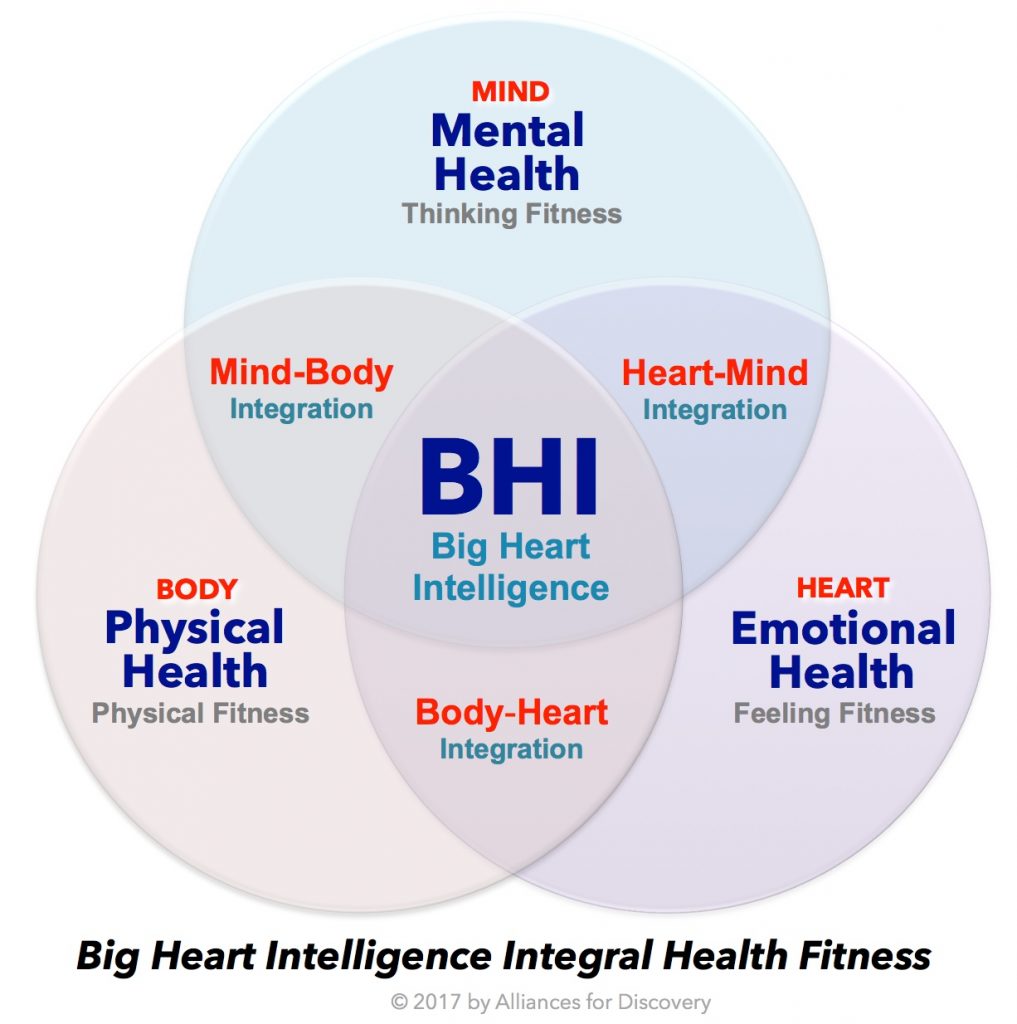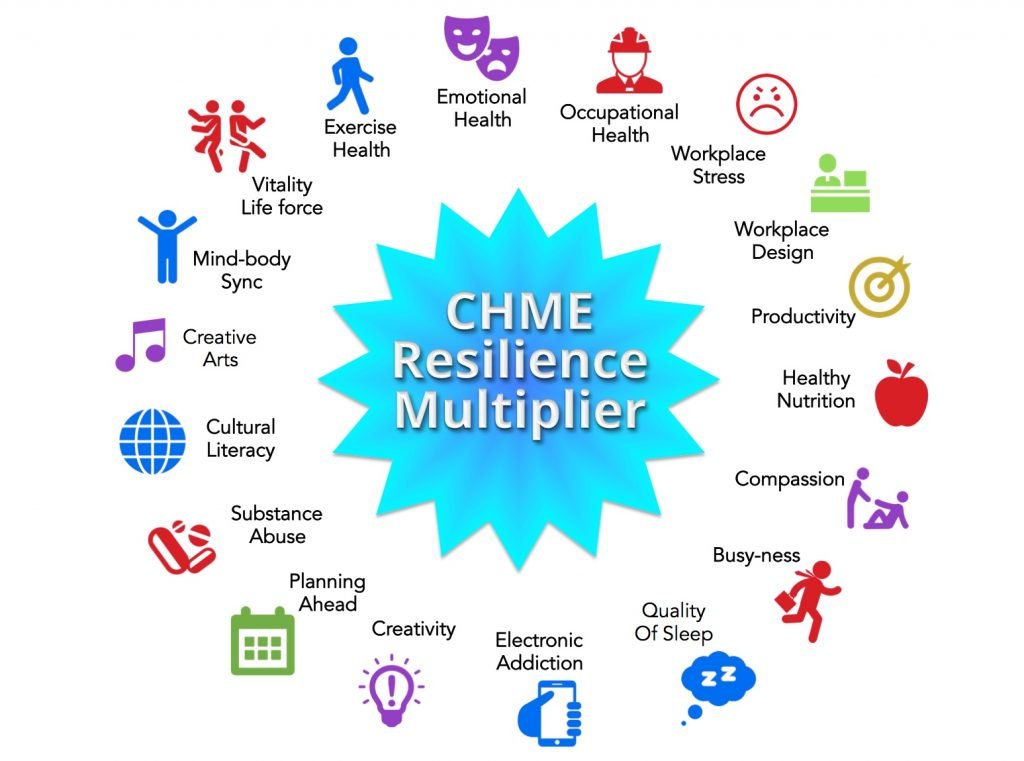Resilience
CHME Resilience Multiplier
“Resilience” generally refers to the capacity to adapt agilely (bounce back and forward) with adversity. All living systems display some degree of resilience. All major illnesses are recognized to be closely correlated with compromised resilience. Nature offers an archetypal model of regeneration and resilience.
Resilience is widely recognized as a core life capacity that can be cultivated, practiced, refined, and measured. Moreover, NASA studies suggest that resilience need not decline as is often assumed with advancing age. Resilience is also a core organizational capacity that wise leaders and managers increasingly recognize should be proactively instilled within the cultural DNA of organizations.
The CHME incorporates an innovative idea of “integral resilience” which refers to the combined /multiplier effects of physical (neurological, immunologic, etc), energetic, emotional, cognitive, psychological, and spiritual components. Integral resilience reflects BHI philosophy as it does not assume that all secrets to resilience reside only in the brain and mind, but rather in the combination, or integration, of brain, mind, spirit, body, and heart. (insert diagram).
How the CHME Helps to Build Community Resilience
- Engagement. Building community engagement is vital part of enhanced resilience. A Visual Matching Engine helps to build powerful Resilience Teams of 10.
- Laughing Heart—10 Essential Moves. This ongoing online program led and coached by Julian Gresser and colleagues for CHME supports members around the world who register and practice the 10 Essential Moves. (Basic text/online living book)
- Apps. “Creating Your Own Luck” is an ‘appified’ version of Moves # 8-# 10.
- Products. Resilience Reflex Ball.
- Resilience Training for Organizations. Integral resilience is a capacity that can be rapidly acquired by organizations of all kinds with direct application to corporate leadership, strategy, negotiations, strategic alliances, product design, development, and marketing, innovation, and employee health, fitness, vitality, and wellness. Integral resilience can be tracked and measured by an Integral Resilient Quotient (IRQ) which builds upon the Resilience Guidelines and Best International Practices developed and published by the NASA, the American Psychological Association, British Standards Institute (BSI), and other leading organizations. The IRQ is a useful benchmark to build and assess enhanced resilience for individuals, families, teams, organizations, and communities of all kinds.


